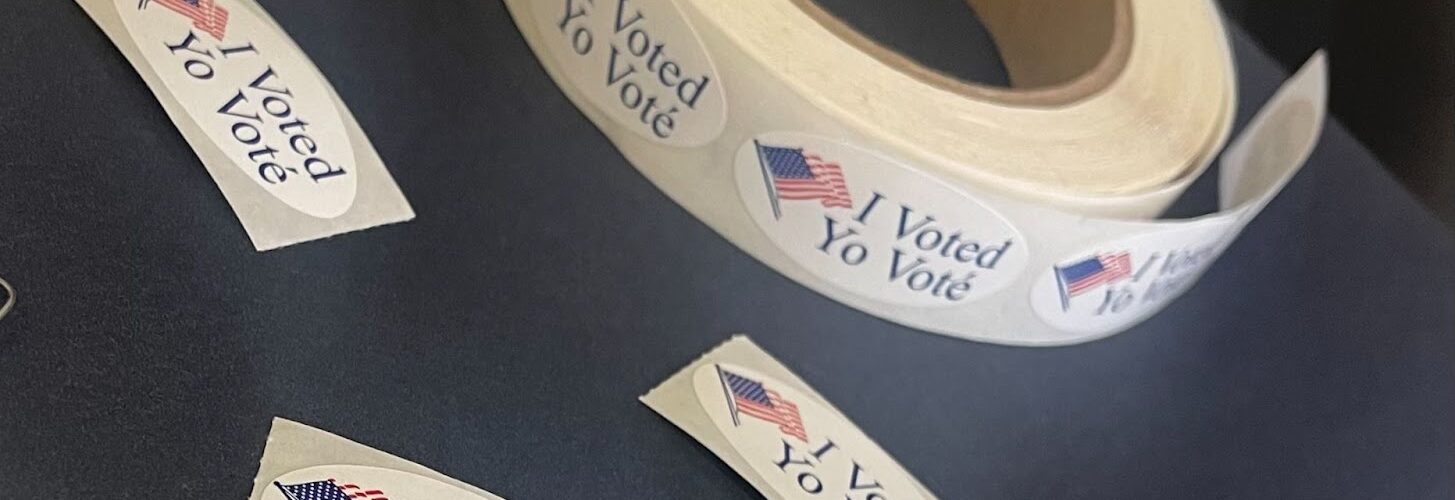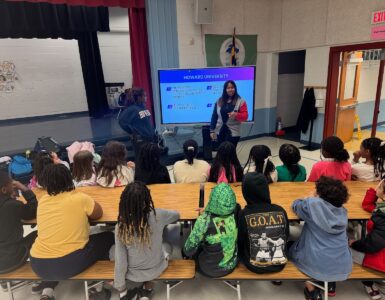I Voted stickers for voters (Naiya Brown/101 Mag.)
This contentious 2024 presidential election has deeper significance for first-generation Americans.
Immigration is a hot topic in this presidential election. Between the debates on border control and illegal immigration and the process of naturalization becoming more difficult over the years, first gens have to think about their rights, and the rights of their families both in and outside of the U.S.
First-generation Americans, or “first-gens”, can have different meanings. They can be people born in the United States but have immigrant parents or they’re not born in the U.S. and are the first in their family to obtain U.S. citizenship or legal residency.
Many of the latter come from families who moved to America for a better life and opportunity. For them, the stakes of this election are huge and carry a heavy responsibility.
For Kubura Issah, a sophomore international business major, the presidential election will be the first election she is eligible to vote for. She believes this election is too important to miss as many policies are in debate.
“Voting is a privilege that some people do not understand. It is one of the only things that you are born with as an American. But some people in the past and now have had to fight to get it. That is a reason I think it’s important to vote,” Issah said
Jordyn Fieulleteau, whose parents are from Antigua and Barbados, believes that it is important to vote for representation.
“I feel like it’s my civic duty to vote. Not only to make sure my voice is heard but so that my views are represented in the government,” Fieulleteau said.
While many citizens eligible to vote in this election feel they vote because of civic duty, first gens often feel they have to vote for their family’s rights.
Payton Garcia is a first-generation American whose father is from Cuba. He thinks a key factor in his decision to vote this year comes from wanting to help many of his family members who are still overseas and wish to immigrate to the U.S. in the future.
“I think about my cousins, who might want to immigrate in the future. Getting your citizenship is hard and with what’s in debate in politics right now, it might be harder for them in the future, he said. “Thinking about our rights and my family’s rights is a big reason why I am voting.”
This presidential election has brought both excitement and worry about how politics are playing out. Issah is excited to see if Harris wins, although she worries about immigrants if the election ends in Trump’s favor.
“You can see how a lot of immigrants are under attack. I saw how nervous my parents were for the first election, and how they felt hate. He kinda opens the door for people to feel like it is okay to say things that are wrong,” Issah said
Like all Americans, first-gens must think about their future during this election. Thinking about how the election results could affect their children and generations after, remains a consistent talking point.
“You’re voting for the generations before and after you. You have to think about the bigger picture.” Issah said.
Valencia McCarthy, a first-gen whose parents are from Guyana and Barbados, is voting in hopes of setting an example for younger people, to show them she did her part.
“I hope I can be an example, especially for my younger siblings who will be able to vote in the years to come,” McCarthy said.
Voting in this year’s Presidential election has proven to be an anticipated event. When asked why it was important to vote, Fieulleteau argued that it allowed voices to be heard.
“If you don’t vote who will? For first-generation Americans, you have to think of your family’s sacrifices to have you here and put you in the position you are in now. You have to make sure that with your vote, it’s not only your voice but their voice is heard,” Fieulleteau said.










Recent Comments